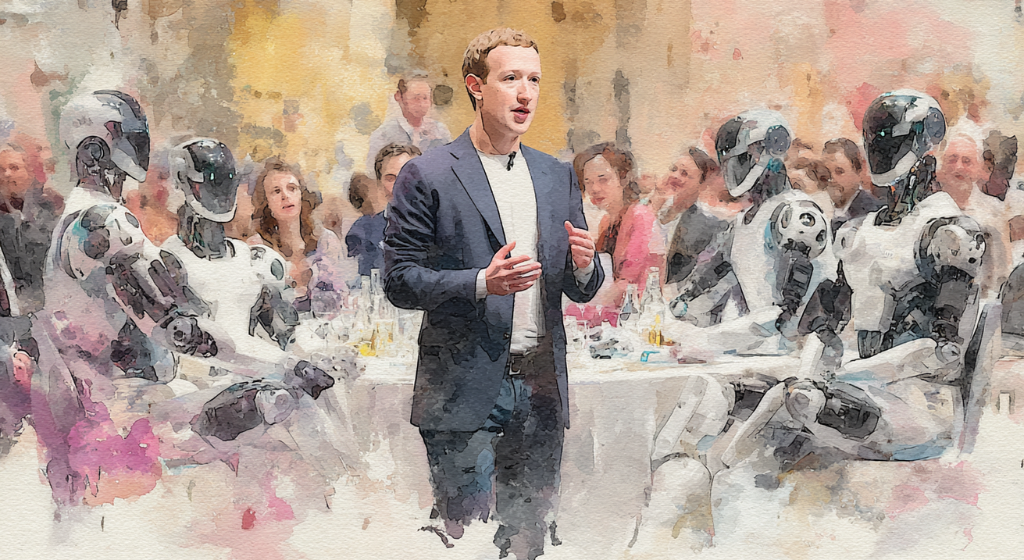
Meta is staking its future on building personal superintelligence—AI that empowers individuals, enhances daily life, and reinforces human agency—rather than automating labor or centralizing control. (Source: Image by RR)
Zuckerberg’s Vision: AI That Knows Your Dreams and Builds Them With You
Meta has publicly declared its intention to focus on building personal superintelligence, envisioning a future where AI enhances individual agency rather than replacing human labor. The company, as noted in meta.com, believes we are beginning to see the early stages of AI improving itself—an initial but undeniable sign that the development of superintelligence is becoming realistic. While the potential applications of such intelligence remain open-ended, Meta argues the highest value lies not in centralized automation but in empowering individuals to achieve their personal aspirations and enrich human experience.
Comparing the moment to historical shifts—such as when technological advancements moved humanity away from agricultural subsistence—Meta CEO Mark Zuckerberg suggests that personal superintelligence could similarly free people to engage more deeply with creativity, culture, relationships and self-development. In this vision, AI is not just a productivity tool but a personal assistant that helps users achieve goals, become better friends and creators, and live more fulfilling lives. Meta positions itself in contrast to other AI firms that aim to direct superintelligence centrally, automating most labor and distributing its output universally.
Meta’s long-term strategy revolves around wearable computing devices—like AR glasses—that see and hear as we do, becoming the primary interface through which users interact with their superintelligent assistants. These devices would allow AI to understand users’ goals in context and help guide them in real-time. According to the company, this form of deeply contextual personal computing will be far more valuable than traditional productivity software. However, Meta acknowledges that such advances raise novel safety and governance concerns, which must be addressed with careful oversight and selective open-sourcing.
Looking ahead, Meta argues the next few years will be decisive in determining the role superintelligence plays in society. The company contends that decentralizing its capabilities and empowering people, rather than concentrating power or automating society, is the key to building a free and prosperous future. With the infrastructure and global reach to support this vision, Meta is positioning itself as the leading proponent of AI that strengthens human agency—declaring that the era of personal superintelligence is not just coming, but is the company’s primary focus for the remainder of the decade.
read more at meta.com







Leave A Comment